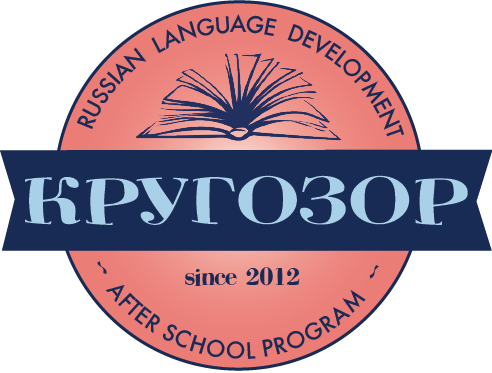1. Happy Azbuka (ages 4 to 5)
In this class children will be introduced to the Russian alphabet and basic vocabulary related to the letters/sounds (more than 500 words and word combinations throughout the course).
They will also do pronunciation drills and recite poems for accent reduction; listen to popular Russian fairy tales, poetry and pieces of contemporary literature for children; watch educational TV shows and famous cartoons to develop their audio-visual comprehension of the language. They will name sounds; color letters and trace pictures to improve fine motor skills.
The sessions will also include solving riddles and puzzles on the development of memory, attention and logical thinking; memorizing short poems about Russian Alphabet, playing mobile and counting-out games, and more.
Home assignments will be provided to review the material and help with mastering all language skills.
2. Basics of Literacy (ages 5 to 8)
Children will learn to consciously read!
Starting with Russian syllables and short words, children will be able to later on read phrases, sentences and, finally, short stories. Kids’ learning styles may differ dramatically, so at least two textbooks (traditional and contemporary) will be used during the course. To carry out an individual approach with each child, elements of various existing methods of teaching reading and comprehension will be used.
In class, children will continue doing activities to expand vocabulary and reduce accents, along with development of memory, attention, imagination and logical thinking. They will also practice asking and answering questions, retelling stories read by a teacher and, later, by themselves, making up their own stories, describing and explaining things, looking for synonyms and antonyms, tracing Cyrillic cursive letters, etc.
Homework will include:
- exercises from textbooks
- ‘fill-in-the-blanks’ and ‘multiple choice’ exercises
- forming syllables and words from letters
- learning tongue-twisters and short poems by heart and reciting them with confidence
- short portions of reading for kids
- pieces for out loud reading by parents
- monitoring of reading comprehension
- tracing Cyrillic cursive letters (Propisi)
- watching cartoons and educational programs
3. Literacy and Literature (ages 7 – 9)
Children in this class can already read quite fluently and start their adventurous voyage into Russian Literature and Culture and accommodate knowledge of Grammar and Vocabulary on an upper-beginner level.
They will start learning basic Russian Grammar Rules and continue doing practice exercises, building and expanding active vocabulary by reading, retelling and discussing books, watching cartoons and movies.
As for writing, children will continue with Russian cursive and at the end of the year they will be able to copy printed text in cursive and compose and write their own texts independently.
Homework accompanied by useful links and exercises will be provided after every lesson.
4. Russian Language and Culture (ages 10+)
Children in this class will read and analyze classical and contemporary Russian prose and poetry, write summaries, compositions and essays, do practice exercises to noticeably expand grammar and vocabulary.
They will also watch fiction movies and documentaries to deeper understand Russian culture and mentality.
Homework will be provided



